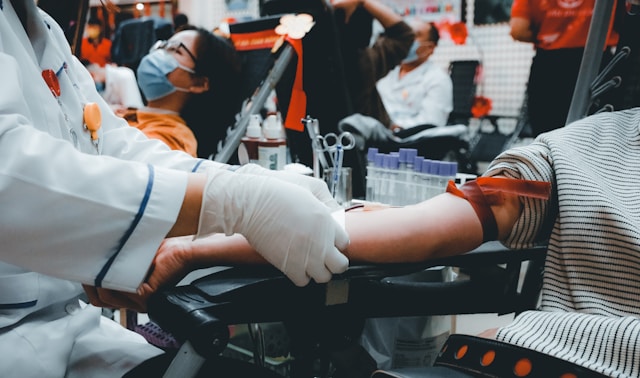A recent study has found a potential link between a blood donor’s diet and allergic transfusion reactions (ATRs), particularly affecting children receiving blood transfusions. ATRs are serious reactions wherein a recipient’s immune system responds adversely to transfused blood. The study suggests that allergens from the donors’ diets may trigger these reactions in patients with food allergies.
Blood transfusion can cause adverse reactions
Blood transfusions are crucial for patients with blood loss or disorders. However, they can cause adverse reactions (ATRs), particularly in children, possibly due to IgE-mediated hypersensitivity. Identifying allergens triggering ATRs has been challenging. A study in Allergy suggests a link between food allergies in children and ATR susceptibility, motivating further investigation.
The study lead author, Dr. Ryu Yanagisawa from Shinshu University Hospital’s Division of Blood Transfusion, said they aimed to explore the potential link between the food consumed by blood donors and the occurrence of ATRs in children with food allergies.
Researchers conducted a study between May 2022 and December 2023, analyzing blood samples from over 100 pediatric patients allergic to common foods and healthy donors. They utilized basophil activation tests (BATs) to observe immune responses to allergenic foods.
Serum of donors that consumed eggs increases allergic response levels
Research findings reveal a significant increase in allergic response levels in patients with egg allergies when exposed to serum from donors who recently consumed eggs, particularly four hours post-ingestion compared to two hours. Variability was observed in the results for milk and wheat allergies.
The study suggests a clear connection between donors’ diets and allergic responses in recipients with specific food allergies. Dr. Yanagisawa’s team intends to expand their research to include more donors and investigate how the timing of food consumption affects the risk of allergic reactions.
Dr. Yanagisawa concludes that there is potential for future prediction of individuals prone to experiencing ATRs. With adequate time, proactive strategies and interventions for ATRs might be formulated, consequently enhancing the safety of blood transfusions. In the end, this has the potential to substantially diminish the risk for susceptible pediatric patients and offer respite to both families and healthcare practitioners.


